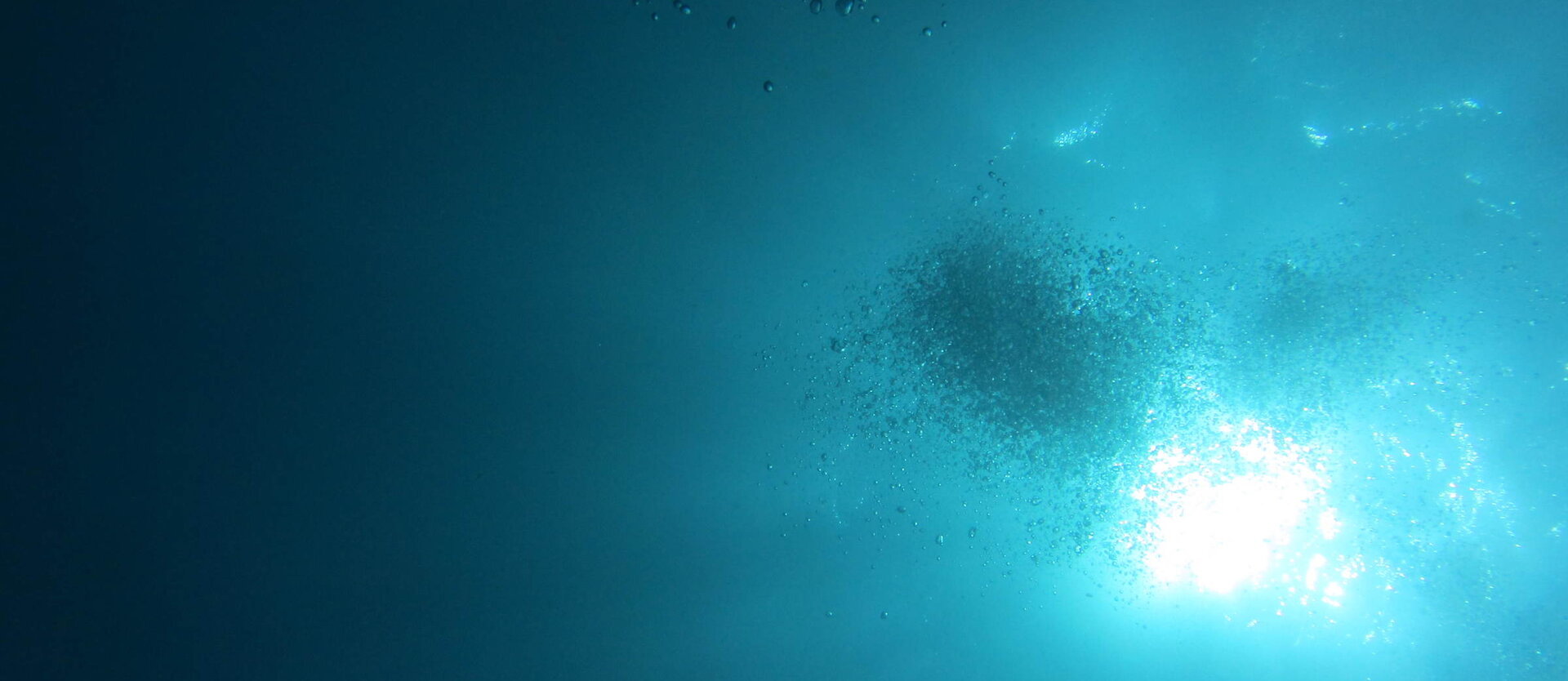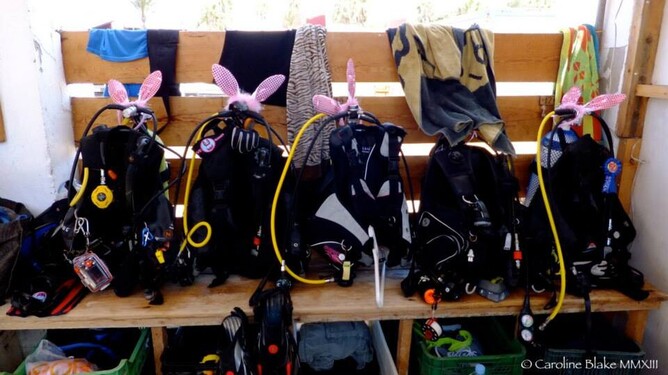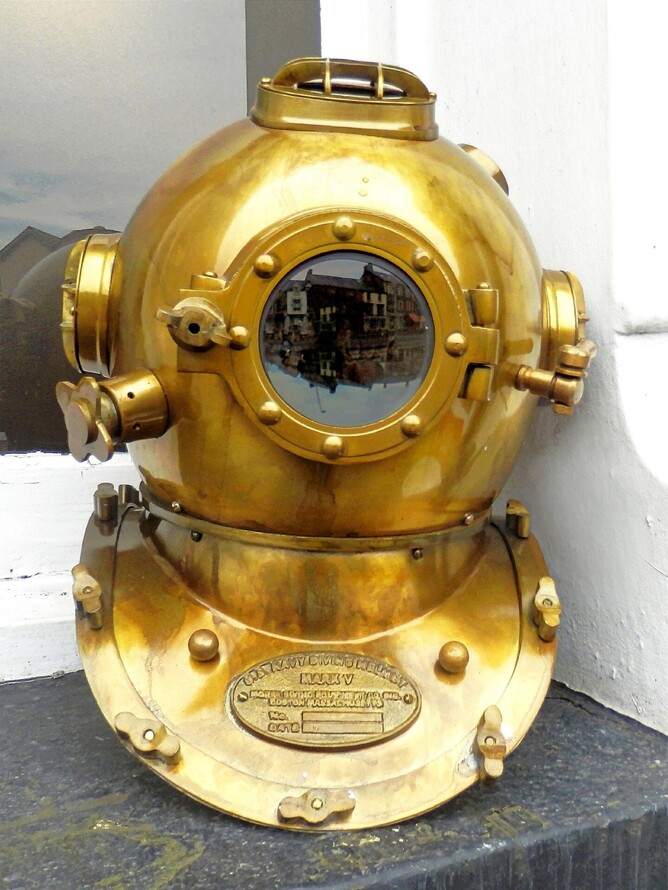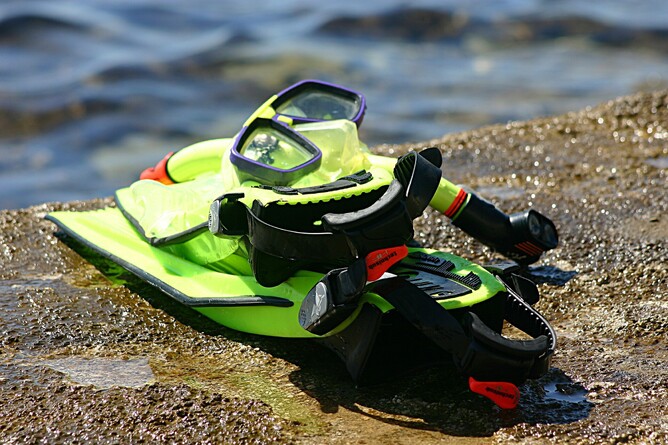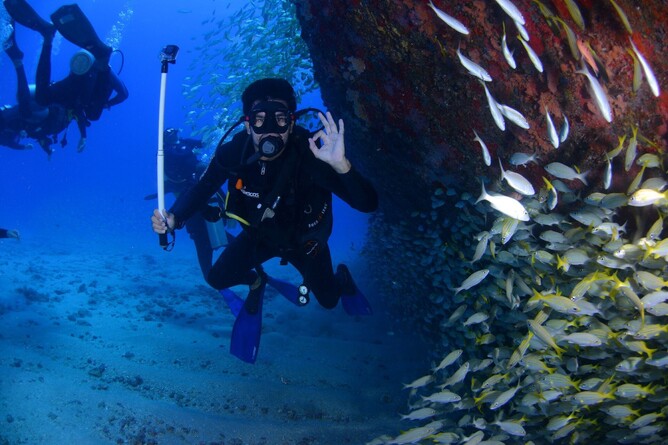But we all want shiny new scuba gear!!!!!
Every scuba diver wants their own dive gear…it’s completely natural and normal and why wouldn’t you?
We all look at the websites, the photos and the reviews. Let's face it, shiny new dive things attract scuba divers like Magpies! Sadly we all find out quite quickly that buying your own scuba diving equipment can be expensive.
For many of us, it’s a really big decision, particularly when starting your collection - something we looked at in our blog What is the first item of scuba diving equipment I should buy?
Rental equipment is for the most part absolutely fine. It will be at the lower end of specifications - something that you will recognise instantly when you make the step from rental to purchased gear.
It is only to be expected since rental gear never gets that same level of love and attention as personal gear. There is also the small issue that if everyone could simply rent the best gear then they’d never buy any!
The quality step-up is instantly evident, however...
Beyond the specification there is the matter of personal hygiene, something that is perhaps more important during COVID-19. Scuba diving centres are extremely diligent in cleaning their equipment but you only really know where something has been if you own it.
Most of us acquire scuba diving equipment over time, mainly because of financial constraints so it is unusual for a new diver to take the plunge and buy a full set of kit.
Equipment then gets replaced when needed, at which point most of us will purchase whatever happens to be the best on the market at that time - or at least what represents the best deal.
This is why it is unusual to see a diver wear everything that is “on brand” with all their equipment being from the same manufacturer (it is actually a trigger for scuba diving professionals to question competence/aptitude - all the gear but no idea!).
Scuba diving equipment is manufactured to extremely high standards, standards that are governed by law and standards that mean that equipment failure is extremely rare.
Top tip: Before you buy any diving equipment make sure you are aware of the servicing costs and ensure that service centres are convenient to your location..
Shiny new scuba gear
New gear is always the best bet. We all love getting our hands on brand new scuba equipment!
Buying new, you get to look across all of the available options that the market has to offer, the equipment will come with a full guarantee and you can return it if it doesn’t quite fit. In addition the service interval may be a couple of years off which is less costly and more convenient.
There is also a really strong argument that you are more likely to purchase the dive equipment that you want and need, rather than what happens to be available on the second hand market.
Many of us have purchased stuff because it is cheap rather than actually needed!
So is second hand an option? Is it something that any scuba diver should consider? Is second hand dive equipment safe? What are the pros and cons?
Buying used scuba diving equipment - should I?
The short answer is yes. Purchasing second hand gear is absolutely an option that any scuba diver should be open to and actively consider.
A great place to start is your local scuba diving centre - they will always have rental gear that they are looking to renew or end of season stock that they might like to turn into cash.
You have to accept the lack of return options and guarantee (even if the item is less than 12 months old the manufacturers guarantee may not be transferable) but the big, big plus is the cost saving.
If you buy regulators or BCDs second hand you must have them serviced. That cost needs to be factored in but not servicing is madness.
If you’re buying cylinders second hand they need to be ‘in test’ with sufficient time remaining until their next test to make sense financially.
When looking online you need to be savvy and serious. There is second hand dive equipment that you would simply not want to touch but you can and will find some absolute gems.
We asked our resident Stig of the Dump, Phil for his thoughts:
“I have purchased a lot of equipment second hand from eBay. As a scuba diver I kind of feel it’s a duty to at the very least look as it is ultimate recycling."
[Ed: Yes Phil - but we know you’re an accountant at heart!]
"Was all of it good? No. Was a lot of it a really good buy? Yes.
"It is a great hunting ground for fins, masks, wetsuits and things like gloves and hoods. Dive computers are also a good bet, I once picked up a second hand diving computer that had 12 dives, retail was €240, I paid €90.
"One of my best finds was a family that clearly had far too much money sloshing around and had bought extremely expensive gear in advance of their open water course.
"They decided that scuba was not for them after the very first pool session.
"I ended up with two BCDs and a set of fins that had been used once and paid less than €130 for about €900 worth of kit. I offered more but he simply wanted it out of his garage.”
So even though the BCDs were so new, did Phil have them serviced?
“One of them, yes. The second one, no as for some inexplicable reason it had been serviced after the pool session and still had the bag of old bits and the service certificate attached to it, all of which was less than three months old."
Top tips for buying second hand scuba diving equipment
There are no guarantees and until you can physically inspect the gear you simply never know what you are buying. So how do you maximise your chances of getting a really good buy and minimise the risk of buying a dud?
Sadly, some of the indicators don’t mean you can return, but they give you a really good insight into what you have bought.
- Find out why the item is being disposed of - it being found laying around in the garage is not a great start;
- Is the seller a scuba diver (active or not)? If so, they may be more aware of the importance of the equipment and less inclined to mislead;
- Purchase with a credit card or through Paypal - that way you have protection if you’re sold a dud;
- What are the sellers' ratings (eBay or Amazon) - volume and rating are crucial;
- On BCDs the wear of the velcro is a great indicator of how much it has been used;
- ALL second hand regs need to be serviced so add £85 roughly;
- Inflate any BCD until the dump valves release and leave it inflated to check if it holds air properly;
- Rinse the equipment in warm water - if you get a smell of chlorine then it’s not been properly cared for - expect a slightly shorter shelf life;
- If it is dive critical then never use it in open water before dropping into the pool and testing it out.
Enjoy this article and want to know more about Dive Bunnies?
Are you a new or novice diver and want to get more involved with Dive Bunnies? Why not join our Facebook Group and make some new friends - we would love to hear from you!
